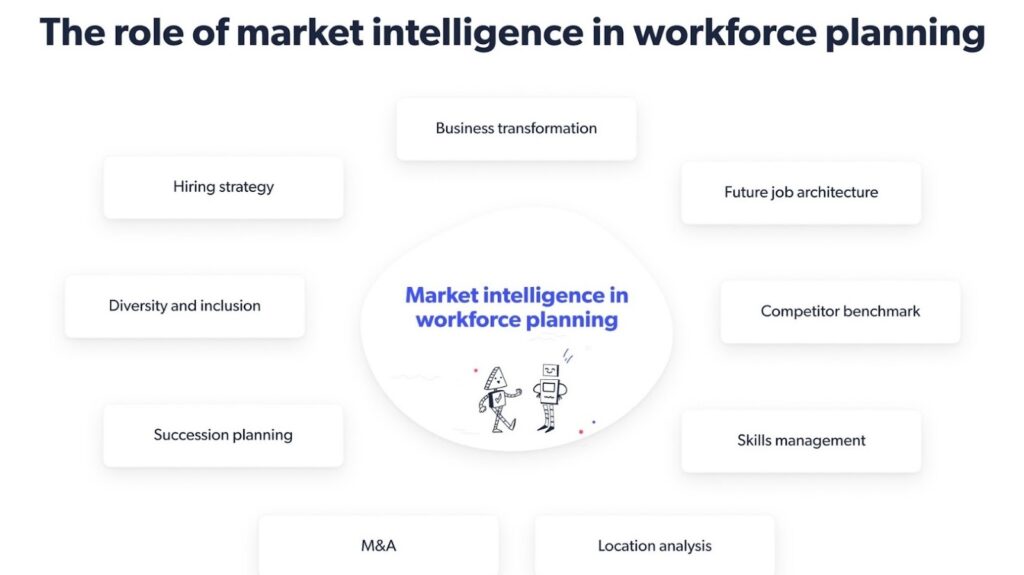In the dynamic world of recruitment, where talent is often in short supply and high demand, competitive intelligence and analysis play a crucial role. As recruitment agencies and HR professionals strive to secure the best talent, understanding the competition becomes a key advantage. But what exactly is competitive intelligence and analysis in the recruitment landscape, and why is it so important?
Competitive intelligence and analysis involve gathering and analyzing information about competitors, market trends, and other external factors that impact business strategies. In the context of recruitment, it helps organizations understand how competitors attract, engage, and retain talent. It also provides insights into the broader recruitment market, including emerging trends, talent availability, and evolving candidate preferences.
For recruitment agencies operating at the bottom of the funnel—where conversion and hiring decisions occur—competitive intelligence becomes even more valuable. It helps tailor recruitment strategies, fine-tune employer branding, and make more informed decisions about candidate sourcing. This article delves deeper into the components of recruitment market analysis and explores how to effectively use market intelligence for recruitment.
What is Recruitment Market Analysis?
Recruitment market analysis is the process of studying the talent market to understand trends, competition, and the availability of talent in specific industries or locations. It involves analyzing factors such as salary benchmarks, in-demand skills, competitor hiring patterns, and candidate behavior. By conducting a thorough recruitment market analysis, agencies can develop more precise recruitment strategies that align with market realities.
How Does Recruitment Market Analysis Transform Your Hiring Strategy?

The primary purpose of recruitment market analysis is to provide data-driven insights that can enhance the recruitment process. Here are some of the core functions of recruitment market intelligence:
- Identifying Trends: Recruitment market analysis helps identify key industry trends such as emerging roles, evolving skill requirements, and changes in employment conditions. This helps agencies anticipate shifts in demand and tailor their recruitment efforts accordingly.
- Understanding Talent Availability: It provides insights into the availability of talent within specific geographies, industries, or job roles. By analyzing talent pools, agencies can identify potential gaps and align their strategies to source the right candidates.
- Evaluating Competition: One of the critical aspects of competitive intelligence and analysis is understanding competitor activities. By tracking the recruitment strategies of rival firms, agencies can benchmark their efforts, identify gaps, and refine their approach to candidate sourcing and engagement.
- Assessing Candidate Behavior: Market analysis also sheds light on candidate preferences, behavior, and expectations, helping recruiters tailor their outreach strategies and employer branding to attract top talent.
What Are the Key Benefits of Recruitment Market Analysis?
- Improved Decision-Making: Recruitment market analysis provides the data needed to make informed decisions about hiring needs, budget allocation, and recruitment strategies.
- Enhanced Candidate Sourcing: By understanding where top talent is located and what motivates them, recruiters can refine sourcing strategies, ensuring they reach candidates who are more likely to convert.
- Better Employer Branding: Market intelligence enables organizations to understand how they are perceived in the market, allowing them to adjust employer branding strategies to attract more qualified candidates.
How to Use Competitive Market Intelligence for Better Recruitment?
Market intelligence for recruitment refers to gathering data about the recruitment landscape and using it to refine strategies, improve candidate sourcing, and enhance employer branding. It involves analyzing competitor hiring practices, talent trends, salary expectations, and candidate preferences.

- Refine Sourcing Strategies: By leveraging competitive intelligence and analysis, recruiters can identify where the best talent is coming from and adjust their sourcing strategies accordingly. For example, if competitors are successfully sourcing talent from specific job boards or social media platforms, it may be beneficial to adopt similar strategies.
- Improve Employer Branding: Understanding how competitors position themselves as employers can provide valuable insights into improving an organization’s own employer brand. Market intelligence for recruitment helps recruiters understand what resonates with candidates, enabling them to enhance their employer branding efforts and attract more talent.
- Stay Ahead of Competitors: By keeping track of competitor hiring trends, recruiters can proactively adjust their strategies to stay competitive. For instance, if a competitor starts offering remote work options, it might be an indicator of changing candidate preferences, prompting agencies to adapt their own offers.
- Optimize Recruitment Marketing: Recruitment market intelligence helps in identifying which marketing channels work best for specific roles or industries. By analyzing successful recruitment campaigns, recruiters can allocate marketing budgets more effectively and increase the chances of attracting the right candidates.
- Reduce Time-to-Hire: By having a clear understanding of the talent landscape and competitor strategies, recruitment agencies can speed up the hiring process, ensuring that top candidates are not lost to competitors.

How to Implement Recruitment Market Intelligence Like a Pro?
1. Leverage Data Analytics Tools
To implement effective competitive intelligence and analysis, it’s essential to use robust data analytics tools. These tools can help gather and analyze data from various sources, including job boards, social media platforms, and industry reports. By using data analytics, recruiters can gain a more comprehensive view of the recruitment market and make data-driven decisions.
2. Monitor Competitor Hiring Strategies
Keeping an eye on competitors is a core aspect of competitive intelligence and analysis. This can be done through various methods, such as tracking competitor job postings, analyzing employer reviews on platforms like Glassdoor, and monitoring their social media activities. By understanding what competitors are doing, recruitment agencies can adopt best practices, avoid pitfalls, and gain a competitive edge.
3. Analyze Job Market Trends
Conducting regular recruitment market analysis helps recruiters stay updated with the latest job market trends, such as in-demand skills, changing salary benchmarks, and emerging roles. This knowledge enables recruiters to align their strategies with market realities, ensuring that they can attract top talent effectively.
4. Engage with Talent Networks
Building and engaging with talent networks is an effective way to gather insights into candidate behavior and preferences. Engaging with talent communities through social media, job fairs, and industry events helps recruiters understand candidate pain points, motivations, and expectations.
5. Implement Employer Branding Strategies
Effective recruitment market intelligence includes understanding the organization’s position in the market and how it is perceived by potential candidates. By analyzing competitor branding strategies and candidate feedback, recruiters can implement employer branding strategies that resonate more effectively with the target talent pool.
6. Conduct Regular Recruitment Audits
Regular audits of recruitment processes help identify gaps and areas for improvement. By analyzing metrics such as time-to-hire, cost-per-hire, and candidate satisfaction, recruitment agencies can refine their strategies and achieve better results. Competitive intelligence and analysis play a crucial role in these audits, providing the necessary benchmarks for comparison.
7. Collaborate with Other Departments
Effective market intelligence for recruitment often requires collaboration with other departments, such as marketing and sales. By aligning recruitment strategies with broader business goals and insights from other teams, recruitment agencies can create a more cohesive approach to talent acquisition.
Conclusion
Competitive intelligence and analysis, along with recruitment market analysis, are essential tools for recruitment agencies operating at the bottom of the funnel. By understanding the competitive landscape, talent availability, and candidate behavior, recruiters can make data-driven decisions that improve sourcing strategies, enhance employer branding, and ultimately, secure top talent faster.
Incorporating market intelligence for recruitment into everyday processes not only enhances recruitment outcomes but also helps recruitment agencies stay ahead in a highly competitive market. By following the best practices outlined above, HR professionals can effectively leverage recruitment market intelligence to achieve better hiring results and drive organizational success.
For recruitment agencies looking to gain a competitive edge, signing up on Jobspikr can provide real-time access to valuable job market insights and help refine your recruitment strategy.



